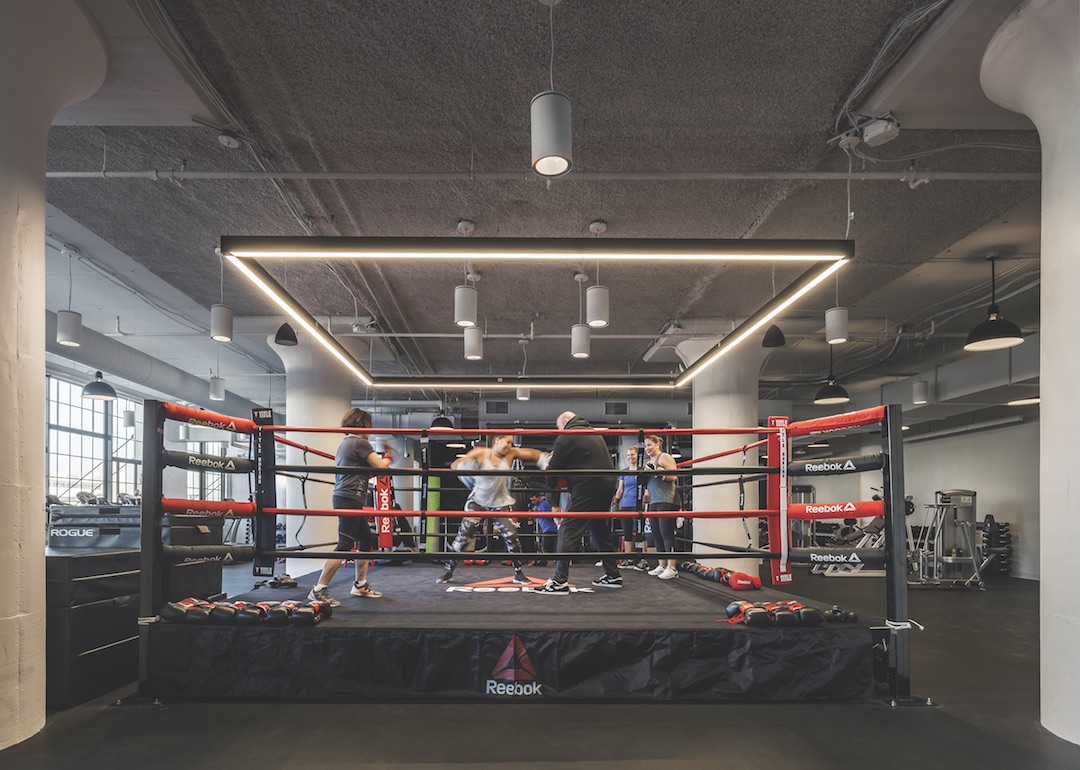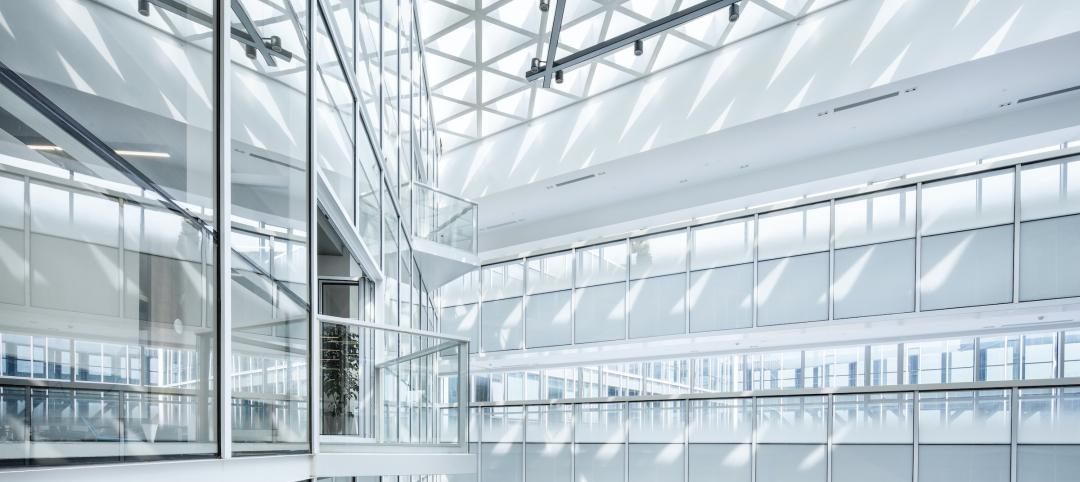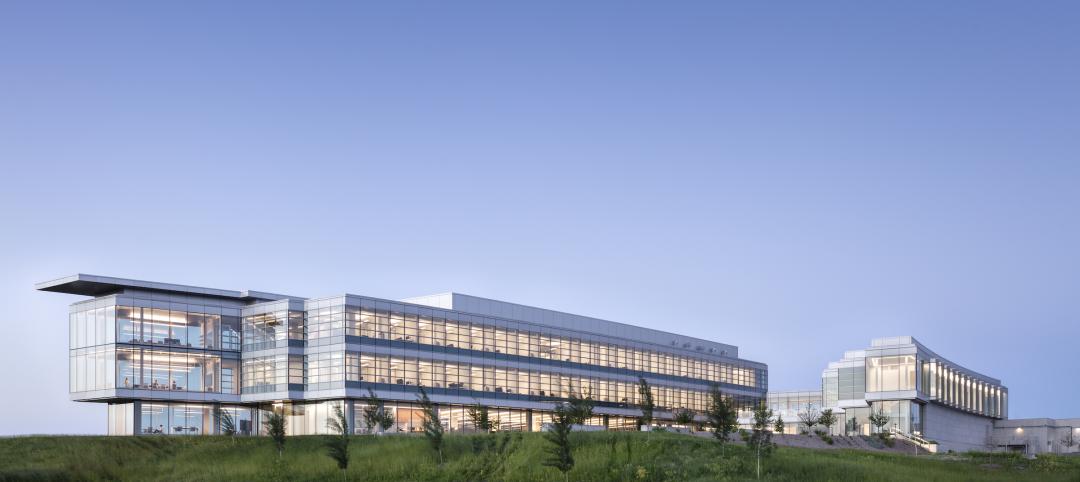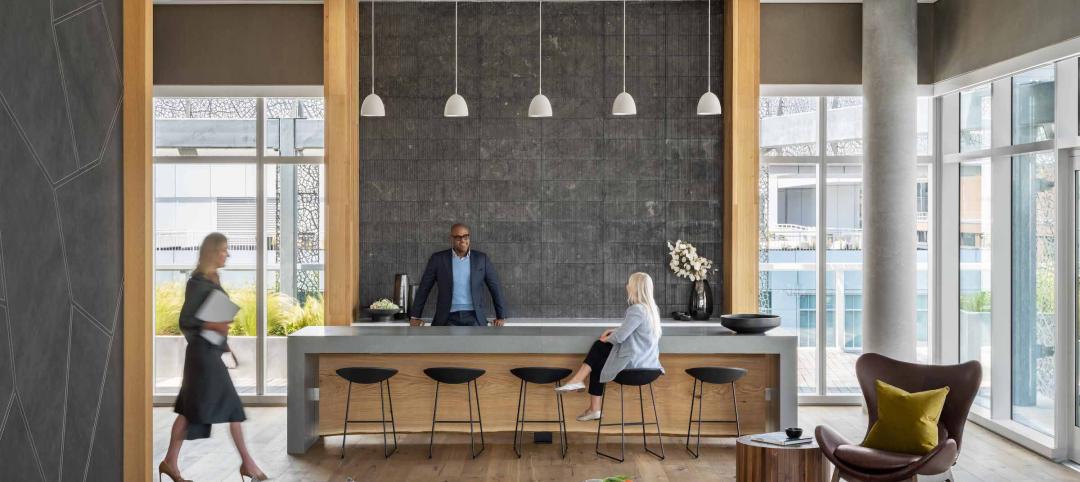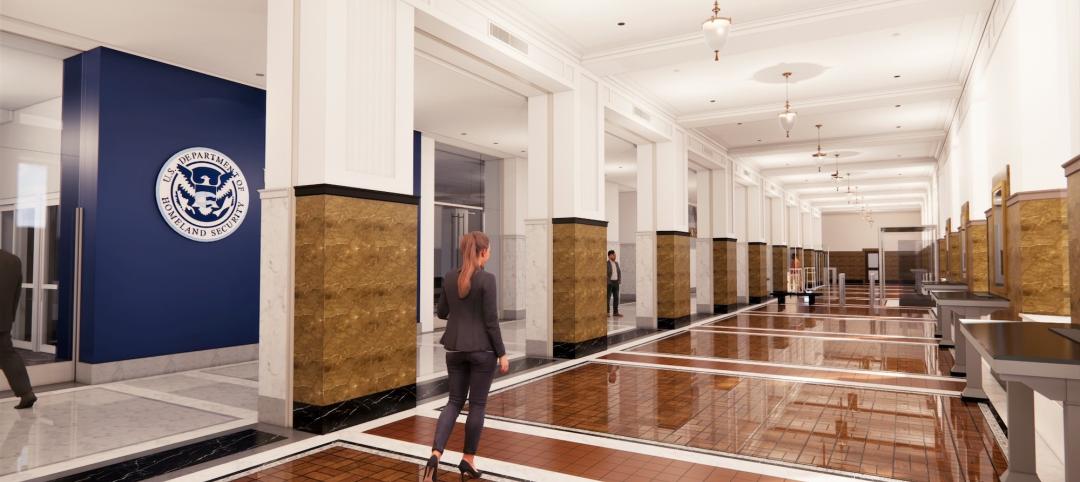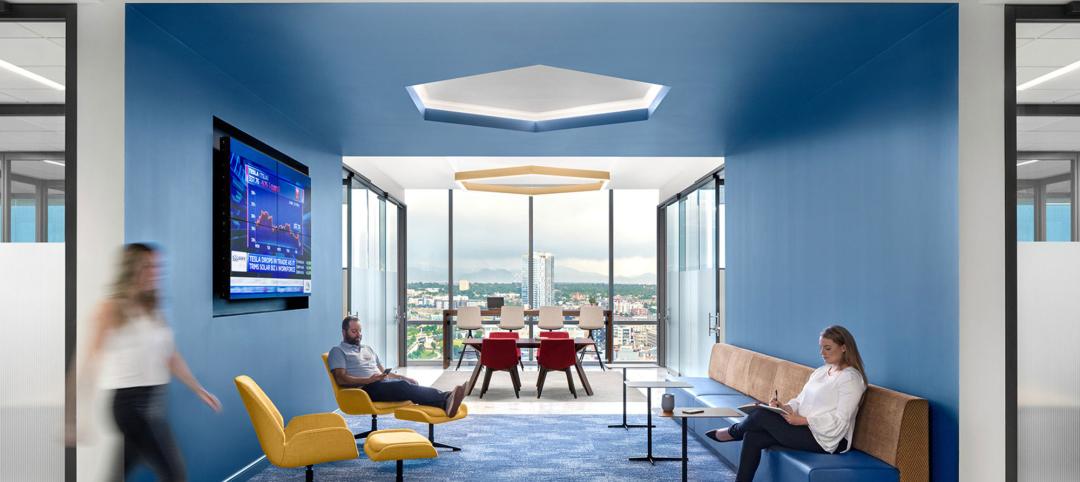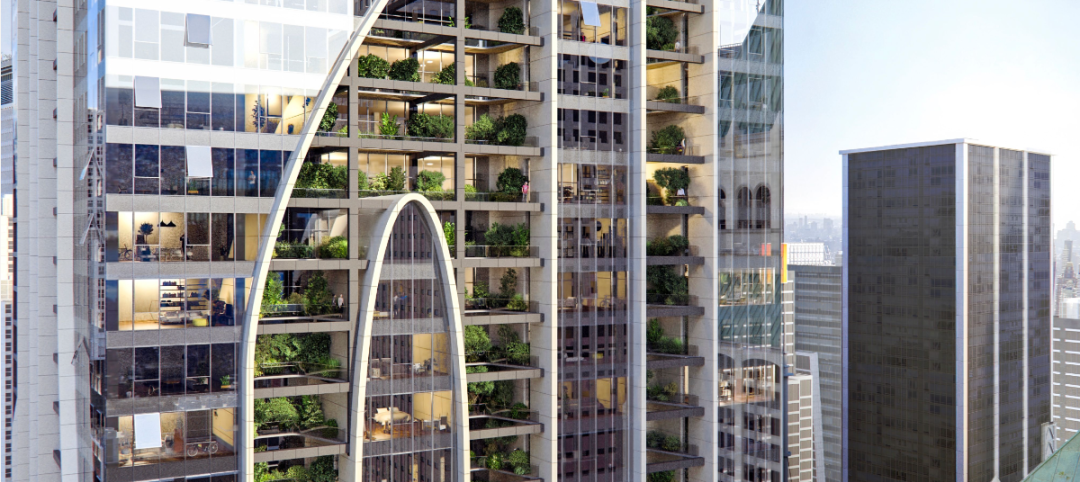Time Warner’s new 1.5-million-sf headquarters will bring together more than 5,000 employees representing five distinct media and entertainment brands: Time Warner, Warner Bros., Turner, CNN, and HBO. The joint workplace will be housed in the 30 Hudson Yards tower under construction on Manhattan’s West Side.
Time Warner believes the consolidated office will deliver bottom-line benefits—not just cost savings but also "a great space for our employees," says Joel Brenner, AIA, Vice President of Global Project Management.
Many companies recognize the value of creating a centralized work community. “We’ve seen several office consolidations and moves to take advantage of new technologies and having all employees under one roof,” says Dan Novack, Vice President, Business Acquisition, Balfour Beatty.
See also: Top 200 Office Architecture + AE Firms - 2018 Giants 300 rankings
See also: Top 90 Office Engineering + EA Firms - 2018 Giants 300 rankings
See also: Top 120 Office Construction + CM Firms - 2018 Giants 300 rankings
Fannie Mae, the federally owned mortgage loan company, is consolidating its Washington, D.C., headquarters from five locations to the new Midtown Center downtown. The new space, which has 80% fewer enclosed offices, could save taxpayers $300 million over the term of a 15-year lease.
Fannie Mae also plans to relocate workers from multiple locations across Northern Virginia to a single office at Reston Gateway, a two-tower, 1.1 million-sf office complex under development in Reston, Va. The project will have a 20-foot-high "super floor" that spans both buildings to provide a multi-functional amenities/community space, says Novack.
Because the current workforce is composed of four distinct generations—each with its unique needs, preferences, and values—office designers are building flexibility into the spaces they create.
“Millennials and Gen Y employees are digital natives who prefer a work environment where they can choose how, where, and with whom they work and collaborate,” says Stantec's Angie Lee, FAIA, IIDA, LEED AP, Senior Principal. “While individual space keeps getting smaller, a new menu of custom-designed spaces and activities is on the rise.”
To meet the varying preferences of a multi-generational workforce, designers recognize they must first understand the user experience (UX). “User profiling is becoming a top priority in workplace design,” says John Capobianco, Design Director and Principal, Interior Architects. The firm went through an extensive workplace strategy process, including visioning sessions and focus groups, for the design of a consulting firm’s new office—"both from a current employee perspective and a recruiting one,” says Capobianco.
Now that Millennials make up the largest group in the U.S. labor force, many of today’s office spaces reflect a blurring of the traditional distinctions between the work and non-work.
“Because work, live, and play are no longer considered
distinct activities, companies need to design their space to support every activity, including socializing, learning, and community building,” says Andy Cohen, FAIA, IIDA, Co-CEO of Gensler. “This affects everything from how we think about work and co-working to mobility and buying trends, all of which can make a tremendous impact on how we approach and deliver design.”
See Also: University trends 2018: Schools are desperately searching for ways to economize
In late 2017, Reebok relocated its headquarters from suburban Boston to the city's Seaport District. Housed in a former waterside storehouse for the South Boston Army Base, the 220,000-sf activity-based workplace is designed as a collection of neighborhoods. There are no assigned seats.
A two-story fitness center features a boxing ring alongside cycling, yoga, and dance studios. Visitors can order customized shoes—and watch them being assembled—at the first-floor flagship retail space. Beyond seeking to attract top-tier design talent, Reebok wanted to energize its maker culture and integrate its brand within Boston’s innovation community.
BUILDING THE TECHNOLOGY INFRASTRUCTURE
The growth of collaborative work environments is driving a proliferation of innovative ceiling, wall, and floor systems.
“A new headquarters space could have over 100 light fixture types, a dozen floor and ceiling systems, and a variety of color schemes and finished wall surfaces to create a more comfortable and healthy workspace for employees,” says James Donaghy, Executive Chairman at Structure Tone.
Today’s workplaces are also equipped with sophisticated conference centers and public assembly areas with increasingly complex audio-visual and IT systems that impact construction sequencing and project scheduling, says Donaghy.
“We must tighten up the construction schedule on submittals and material delivery to ensure we start and complete above-ceiling commissioning and inspections earlier to give the A/V and IT contractors sufficient time to complete their work,” he says. “Then these new systems must be tested and commissioned before the move.”
Office lobbies are becoming active social spaces that include lounge seating, art installations, and coffee bars. “Clients are turning their lobbies into destinations instead of pass-through spaces,” says Bert Rahm, Vice President and General Manager of Turner Construction Company. “They’re raising ceiling heights, removing columns, and emphasizing natural light to create a much more inviting atmosphere for tenants, visitors, and the general public.”
“Smart cities and co-working groups are challenging the traditional real estate model,” says David Bourke, Co-CEO and Co-President, Interior Architects. “The role of design has never been more important.”
Related Stories
Mixed-Use | Sep 20, 2023
Tampa Bay Rays, Hines finalize deal for a stadium-anchored multiuse district in St. Petersburg, Fla.
The Tampa Bay Rays Major League Baseball team announced that it has reached an agreement with St. Petersburg and Pinellas County on a $6.5 billion, 86-acre mixed-use development that will include a new 30,000-seat ballpark and an array of office, housing, hotel, retail, and restaurant space totaling 8 million sf.
Giants 400 | Sep 18, 2023
Top 90 Office Building Engineering Firms for 2023
Jacobs, WSP, Alfa Tech, and AECOM head BD+C's ranking of the nation's largest office building sector engineering and engineering/architecture (EA) firms for 2023, as reported in Building Design+Construction's 2023 Giants 400 Report. Note: This ranking includes revenue for all office building work, including core and shell projects and workplace/interior fitouts.
Giants 400 | Sep 18, 2023
Top 120 Office Building Construction Firms for 2023
Turner Construction, STO Building Group, AECOM, and DPR Construction top BD+C's ranking of the nation's largest office building sector contractors and construction management (CM) firms for 2023, as reported in Building Design+Construction's 2023 Giants 400 Report. Note: This ranking includes revenue for all office building work, including core and shell projects and workplace/interior fitouts.
Giants 400 | Sep 18, 2023
Top 200 Office Building Architecture Firms for 2023
Gensler, Stantec, HOK, and Interior Architects top BD+C's ranking of the nation's largest office building sector architecture and architecture/engineering (AE) firms for 2023, as reported in Building Design+Construction's 2023 Giants 400 Report. Note: This ranking includes revenue for all office building work, including core and shell projects and workplace/interior fitouts.
Adaptive Reuse | Sep 15, 2023
Salt Lake City’s Frank E. Moss U.S. Courthouse will transform into a modern workplace for federal agencies
In downtown Salt Lake City, the Frank E. Moss U.S. Courthouse is being transformed into a modern workplace for about a dozen federal agencies. By providing offices for agencies previously housed elsewhere, the adaptive reuse project is expected to realize an annual savings for the federal government of up to $6 million in lease costs.
Office Buildings | Sep 14, 2023
New York office revamp by Kohn Pedersen Fox features new façade raising occupant comfort, reducing energy use
The modernization of a mid-century Midtown Manhattan office tower features a new façade intended to improve occupant comfort and reduce energy consumption. The building, at 666 Fifth Avenue, was originally designed by Carson & Lundin. First opened in November 1957 when it was considered cutting-edge, the original façade of the 500-foot-tall modernist skyscraper was highly inefficient by today’s energy efficiency standards.
Designers | Sep 5, 2023
Optimizing interior design for human health
Page Southerland Page demonstrates how interior design influences our mood, mental health, and physical comfort.
Office Buildings | Aug 31, 2023
About 11% of U.S. office buildings could be suitable for green office-to-residential conversions
A National Bureau of Economic Research working paper from researchers at New York University and Columbia Business School indicates that about 11% of U.S. office buildings may be suitable for conversion to green multifamily properties.
Adaptive Reuse | Aug 31, 2023
New York City creates team to accelerate office-to-residential conversions
New York City has a new Office Conversion Accelerator Team that provides a single point of contact within city government to help speed adaptive reuse projects. Projects that create 50 or more housing units from office buildings are eligible for this new program.
Office Buildings | Aug 25, 2023
A new white paper explores the pros and cons of office building conversions
Produced by SGA and Colliers, the paper charts considerations for 14 building types.


